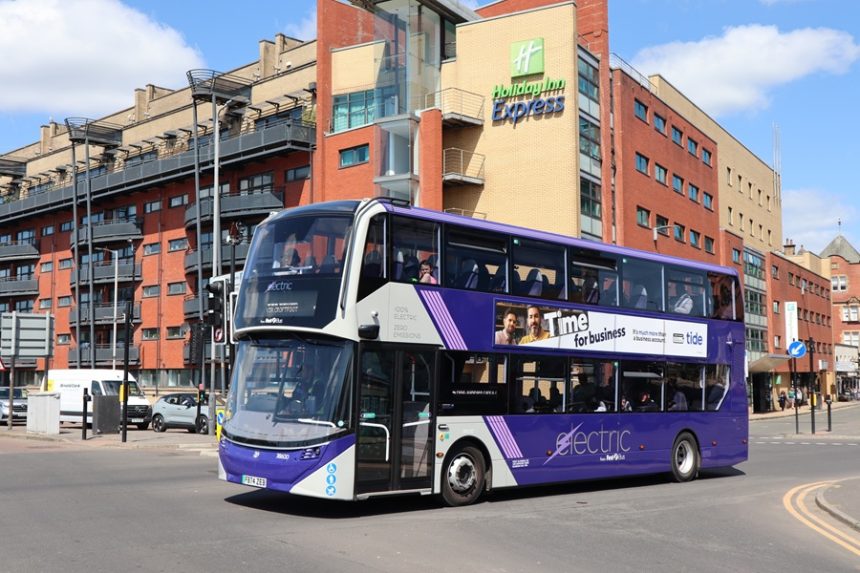The task of fostering a healthy UK zero-emission bus manufacturing industry in a field where most purchases have public subsidy attached continues to test the political masters of the sector and the constraints they work under.
Alexander Dennis has made its position clear. The manufacturer has proposed a cessation of bus manufacturing at its plants in Scotland and consolidation of that activity at the former Plaxton facility in Scarborough.
The sums behind that are simple, it says: Too few orders, too much capacity. No business can sustain that. Switch Mobility is leaving bus building in the UK entirely, but that is perhaps less surprising given a vehicle portfolio here that needs major development.
Yet scarcely a week passes without Wrightbus announcing product news or another senior appointment. It is building zero-emission buses flat-out and will bring a hydrogen-fuelled coach to that segment that is expected to be made in Northern Ireland.
Nevertheless, concern about domestic bus manufacturing has struck home in the corridors of power. Talk now is of bringing forward a 10-year pipeline of orders for zero-emission vehicles from that source in what is perhaps the most intriguing part of the recent UK Bus Manufacturing Expert Panel extraordinary meeting.
Details on how that would – or even could – work are unclear, but the political imperative now is to preserve Alexander Dennis manufacturing in Scotland. Few would argue against a solution in that area being warranted, which is vastly preferable to seeing 400 jobs go.
Expectation around the bus industry is that it – whatever ‘it’ turns out to be – will come forward. There is a precedent. To avert an equally toxic end to rolling stock manufacturing in Derby, 10 additional Elizabeth Line trains were ordered in 2024 thanks to £220 million from the Department for Transport.

Franchising will see a more predictable purchasing strategy for new buses and there is an indication in England that Combined Authorities on that path will work with domestic builders.
The wider industry in England also has the benefit of longer-horizon funding allocations from government, and the zero-emission trajectory in Northern Ireland is clear. The situation for Scotland and Wales is much less so.
The Scottish Government says no more zero-emission bus funding will be forthcoming. For Wales, aspirations around an emission-free nationwide franchised bus network are prominent, but the funding position to deliver it is not.
Wales already lags the other Home Nations in zero-emission bus uptake, and the Welsh Government was unrepresented at the recent UK Bus Manufacturing Export Panel meeting. Structure, affordability and deliverability of its franchising proposals are under close scrutiny that is unlikely to go away any time soon.
Domestic bus manufacturing is not a new agenda item. The National Bus Strategy for England in 2021 spoke of fleets of such vehicles and “a sustained pipeline” of orders; like much with Boris Johnson’s government, the reality differed from the promise. It is proposals aired more recently by Alexander Dennis that have brought the matter back to prominence.
But any expectation that central policy will comprehensively reset the field is misguided for one major reason before things like procurement rules are considered: Demand for zero-emission buses over coming years will exceed what can be produced domestically.
Greater Manchester plans to fully electrify its Bee Network fleet by 2030. London’s realistic date for the same is 2034; nine years away, but with a need for around 6,500 buses in the meantime.
Repower of existing vehicles will account for some of those, but when other franchised areas and zero-emission commitments by operators in the deregulated field are added to the equation, the scale of the forthcoming market becomes clear.
A strong domestic bus manufacturing landscape will play its part in delivering there. And that is why securing capacity at Alexander Dennis plants in Scotland is the imperative it has quickly developed into. It will enable perhaps the most important thing of all: A healthy and competitive marketplace.


























